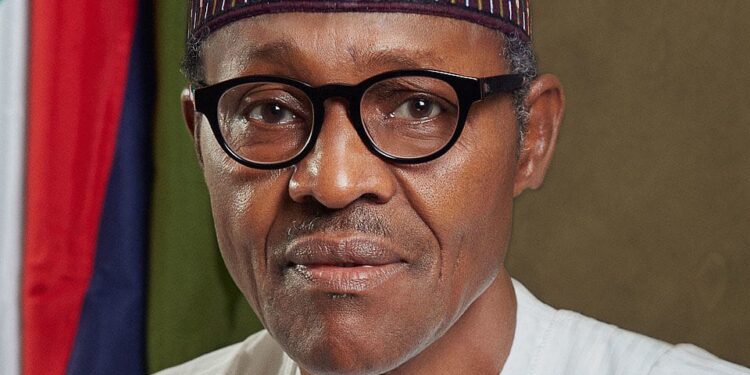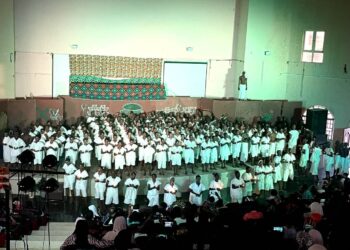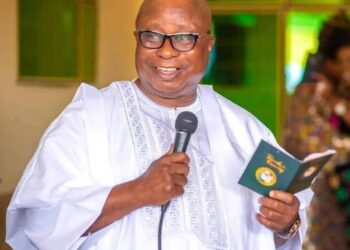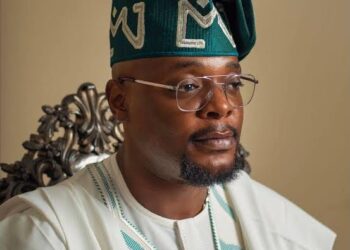By Femi Emmanuel
A wave of sorrow swept across Nigeria and the international community following the passing of former Nigerian President, Muhammadu Buhari, who died on July 13, 2025, at the age of 82. In honour of the late statesman, the Federal Government led by President Bola Ahmed Tinubu declared Tuesday, July 15, a public holiday, and ordered the national flag flown at half-mast nationwide.

Buhari’s life was marked by contrasting chapters of military precision and civilian governance. He first rose to prominence as a military Head of State from 1983 to 1985, during which he, alongside his then-Deputy, Major General Tunde Idiagbon, launched one of the country’s most aggressive campaigns: the War Against Indiscipline (WAI).
The WAI was aimed at instilling order, environmental consciousness, and civic responsibility among Nigerians. Through this initiative, Buhari sought to combat public disorder, improper waste disposal, and environmental degradation, giving Nigeria a semblance of global recognition for its stance on sanitation and civic behaviour. Though enforced by military decree, the policy had lasting effects, significantly reducing littering, roadside scrap dumping, and unregulated parking.
A Discipline-Driven Military Legacy
As a military leader, Buhari’s tenure was associated with a no-nonsense approach to governance. Many Nigerians recall that era with a sense of nostalgia — an era where discipline was non-negotiable and accountability was non-partisan. His administration was staffed with credible individuals, both in the military and the civil service, carefully chosen to ensure integrity in governance.
It was this reputation that paved the way for his political comeback decades later.
Civilian Presidency: From Hope to Disillusionment
In 2015, Muhammadu Buhari was elected President of Nigeria under a democratic dispensation, riding on the wave of his disciplined past and perceived incorruptibility. His election was widely celebrated as a potential turning point in Nigeria’s political trajectory. Upon assuming office, Buhari pledged to tackle corruption, insecurity, and economic instability—challenges that had long plagued the nation.
However, his eight-year rule from 2015 to 2023 was a far cry from the expectations that preceded it. Despite his initial blueprint for national transformation, many critics and citizens alike argue that Buhari’s government failed to deliver on key promises. Though he maintained a tough stance on corruption, his administration was increasingly accused of nepotism, appointing individuals lacking the necessary political pedigree or competence to lead critical sectors of the economy.
These appointments, often seen as influenced by favouritism rather than merit, contributed significantly to administrative inefficiencies and public distrust.
Economically, his policies—including a controversial currency reform and tight border control—sparked national debates. While some initiatives were intended to stabilize the economy, they were often viewed as poorly timed or inadequately communicated, leading to hardship for ordinary Nigerians.
The Man and His Intention
Supporters of the late Buhari believe he had noble intentions for Nigeria. His vision of a nation built on discipline, transparency, and accountability resonated with many, especially during his early years in power. However, the realities of democratic leadership, combined with policy missteps and poor human capital management, dimmed the shine of his legacy.
Despite these setbacks, Buhari remained a central figure in Nigeria’s post-independence history — one whose impact cannot be overlooked, whether praised or critiqued.
A Final Farewell
As the nation bids farewell to one of its most consequential leaders, prayers pour in for his soul to find eternal rest. While the verdict on his legacy may remain a subject of public discourse, there is no denying that Muhammadu Buhari left an indelible mark on the Nigerian state — one shaped by discipline, ambition, and ultimately, controversy.
May his soul rest in peace. May Allah grant him Aljana Firdaus. Amin.
You can get every of our news as soon as they drop on WhatsApp ...To get all news updates, Join our WhatsApp Group (Click Here)












